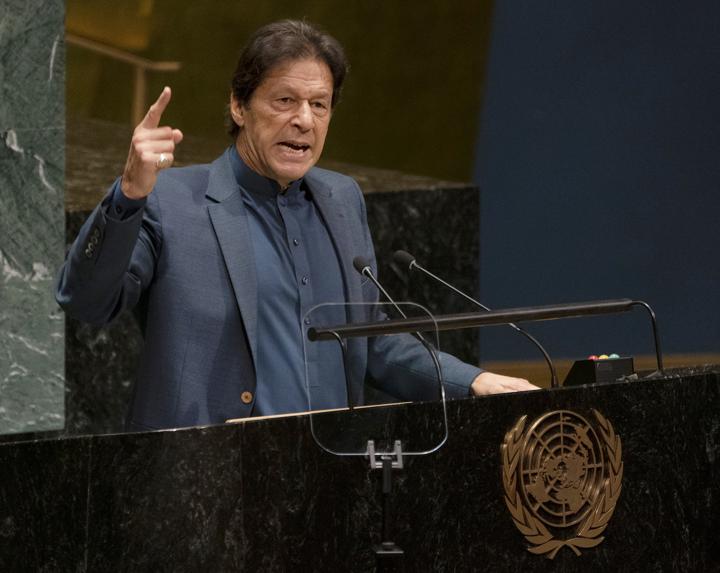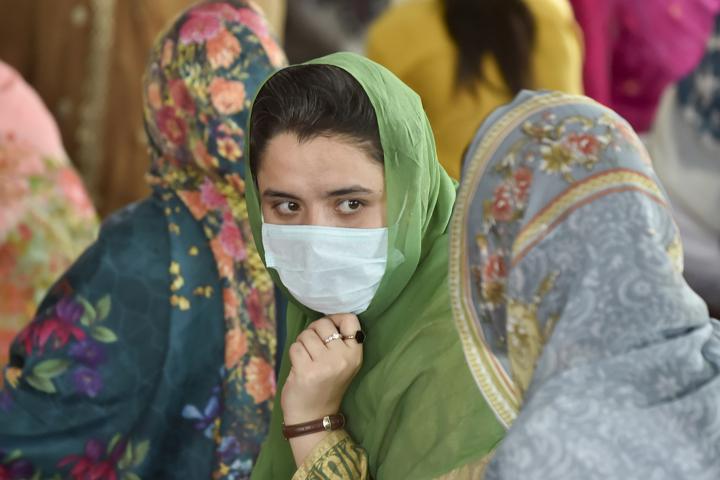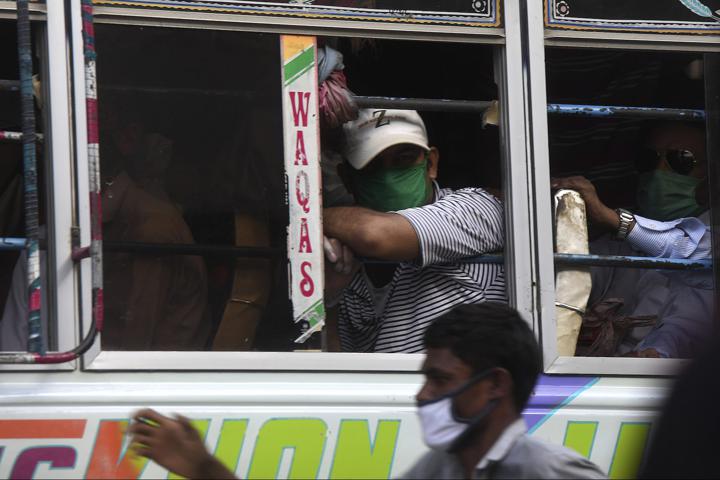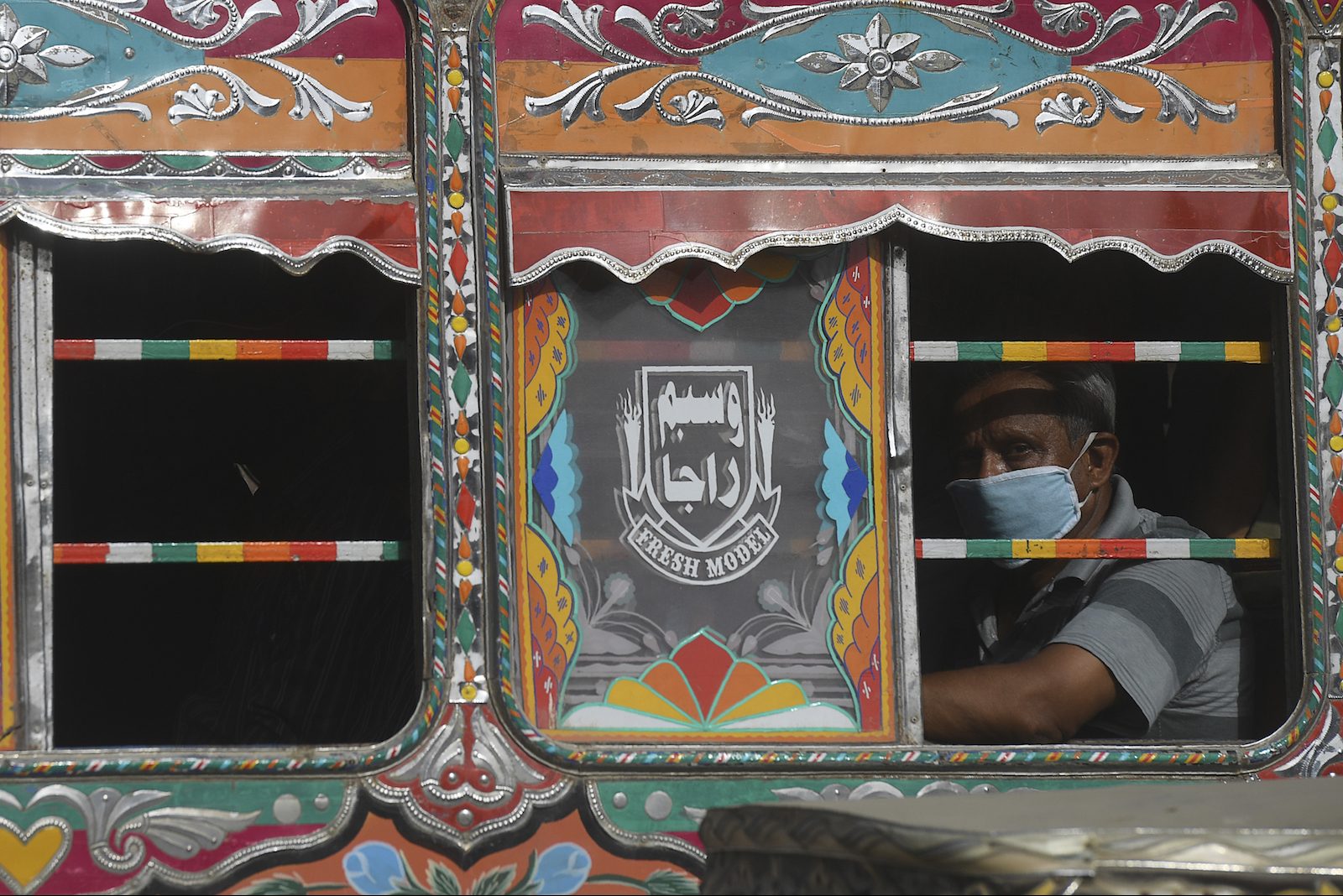PESHAWAR – When Pakistan reported its first Covid-19 case in mid-March, ruling Pakistan Tehrik-e-Insaf (PTI) leaders shrugged off the early warning as a mere mild case of the flu.
Four months later, Pakistan has surged moved up the global coronavirus infection tables into 15th place with over 181,088 cases and 3,590 fatalities. Health authorities reported 4,471 new cases over the last 24 hours as of midday on Monday.
As other virus-hit nations exit lockdowns and restart their economies, Pakistan’s Covid-19 situation is deteriorating, not ameliorating as the virus starts its lethal spread through the nation’s congested urban areas including slum dwellings.
The fast surge in new cases is already overwhelming hospitals, with news reports of angry families of Covid-19 patients attacking doctors and smashing healthcare facilities because they are being turned away by healthcare givers. Local headlines suggest patients are now “literally fighting for hospital beds.”
The country has so far conducted 1.1 million tests, authorities say, meaning the scale of the health crisis may be much larger than indicated in official statistics.
Asad Umar, head of the National Command and Operation Center (NCOC) directing Pakistan’s Covid-19 battle, said earlier this month the country could at current trends have 1.2 million infections by the end of July.
None of these revelations appear to be effecting Prime Minister Imran Khan, who’s government continues to play down the rising warnings. Indeed, there is little to no indication that Khan aims to impose the social distancing measures experts say are needed to arrest the viral spread and avoid a massive human catastrophe.

Pakistani Prime Minister Imran Khan speaks at UN Headquarters in New York on September 27, 2019. Photo: AFP/ Don Emmert
The signs of government mismanagement and inconsistent policies are widely apparent. On June 15, the Punjab Primary and Secondary Healthcare Department told Punjab’s Chief Minister Sardar Usman Buzdar that Punjab’s capital, Lahore, now has over 700,000 Covid-19 cases.
The medical department said that every commercial and residential area in Lahore has been impacted by the disease and recommended a complete lockdown, adding that “asymptomatic cases became the main source of infection and local transmission” in the metropolis.
Khan’s government has not yet acted on the provincial department’s recommendation to impose strict quarantine measures. Lahore reported 1,294 new cases over the weekend, according to official statistics.
That recommendation follows on a World Health Organization (WHO) letter sent to all provincial governments on June 6 advising they reimpose strict, intermittent lockdowns in all localities where the coronavirus was known to be spreading to avoid a healthcare system collapse.
WHO Pakistan chief Palitha Mahipala wrote in the letter that the country did not meet any of the organization’s six technical criteria for easing a lockdown. Khan’s government lifted a patchwork of varied lockdown measures in late May, ahead of the Eid-al-Fitr festival.
The WHO representative wrote that Pakistan’s surveillance system to identify, test, isolate, medical care and contact tracing was “weak.”
“There is limited capacity to provide critical care [only 751 ventilators are allocated for Covid-19] and the population is not ready to adapt to change behaviour,” Mahipala wrote.
Instead of heeding the WHO’s warnings and acting on the Punjab healthcare unit’s more recent findings, the government has stuck with a “selective lockdown” policy in hotspot areas of Lahore, said Dr Khyzar Hayat, chairman of the Young Doctor Association, told Asia Times.

Sikh pilgrims attend a religious ceremony at Gurdwara Dera Sahib in Lahore on June 16, 2020. Photo: AFP/ Arif Ali
“This mechanism will not work because the virus is extensively spread everywhere,” Hayat said, noting that the Covid-19 fatality rate is shooting up across the country. That, he says, has compelled healthcare staff to treat certain patients while turning away others who arrive at local hospitals with Covid-19 symptoms.
“We unfortunately could only retain such patients in the hospitals whose [virus] saturation level is dropping and the rest of patients are sent home,” he said, noting some of those who have been turned away had “silent hypoxia” symptoms and needed monitoring and oxygen. “These facilities are not provided at homes,” he noted.
The hospitals in Punjab, Hayat said, are now overwhelmed and healthcare staff and doctors are increasingly contracting the virus themselves without adequate medical protective equipment.
Still, Khan has opposed a complete lockdown since the outset of the country’s outbreak. He has said that daily wage-earners and labourers would die of starvation if they do not have the opportunity to keep working.
Despite forging a strong measure of national cohesion to fight the pandemic, Khan’s ruling clique has mostly eluded criticism for its erratic coronavirus response by frequently changing its position on the mounting crisis.
In early March, there was widespread confusion among federal and provincial governments concerning the enforcement of lockdown measures. Then, the federal government was against a lockdown while the provinces of Sindh, Balochistan, Kashmir and areas of Gilgit-Baltistan were in favor.
A highly placed source in the Defence Ministry told Asia Times that Khan’s tough stance against quarantine measures stems from his apprehension about crippling the industrial and business empires of the powerful military establishment, which might have collapsed if a full shutdown was enforced.
“Khan is, however, pretending as if [he is] worried about the livelihood of the daily earners,” the source claimed.

Passengers wearing masks sit on a bus in Karachi on June 8, 2020. Photo: AFP/ Asif Hassan
In mid-May, Khan’s government suddenly lifted a lockdown and allowed commercial and industrial activities, days before the annual religious festival. Soon thereafter, people thronged shops, supermarkets, shopping centres, and grocery stores for Eid-related shopping across the country.
Last month, the country’s Supreme Court ruled to re-open shopping malls, arguing that it did not make sense to keep them closed when other traditional and other markets were allowed to operate.
“It has been recognised internationally that the lockdown is a temporary solution to the coronavirus crisis,” Khan said during a meeting in May on the Covid-19 situation in the country. “We have eased restrictions given people’s miseries and starvation of poor and daily wage earners,” he added.
Khan also allowed for congregation prayers in mosques, coinciding with the advent of the holy month of Ramadan in late April. The government has since allowed the Muslim clergy to lead massive prayers, including congregations on Eid day.
Economy hit hard
Apart from the rising human losses, the Covid-19 crisis is expected to hit Pakistan’s economy especially hard.
Farrukh Saleem, a renowned economist, analyst, and researcher, estimates that between 15 to 20 million people will be made jobless while 30 to 40 million will slip under the poverty line in the nation of 212 million.
While Khan has so far sought to play down Covid-19’s health effects, he will be harder pressed to look past its economic impacts.
This report by FM Shakil appeared first on Asia Times
























